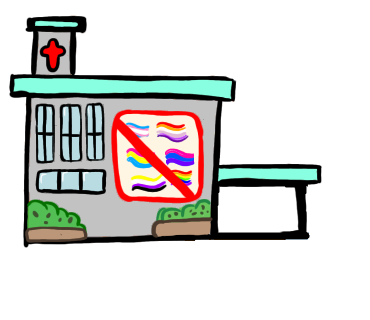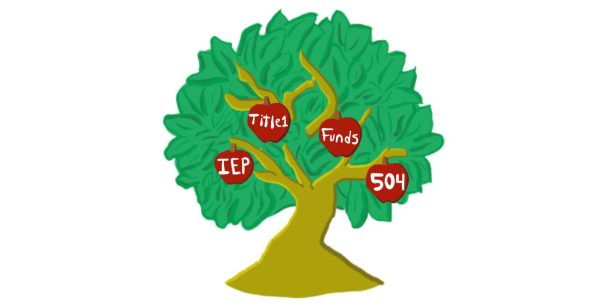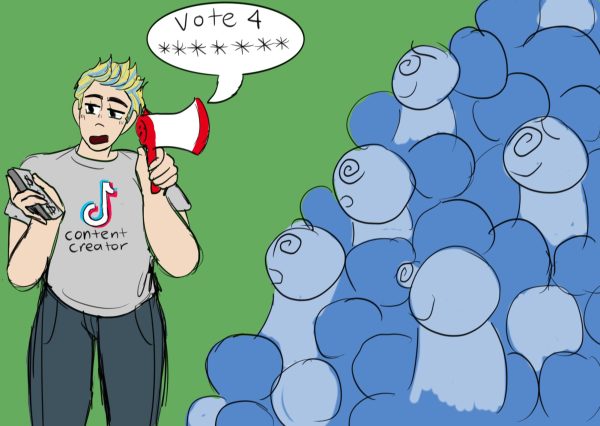A detriment for millions
Legislation restricting the access to healthcare for the LGBTQ+ community will harm lives

As the LGBTQ+ community gains representation amongst the media, so does the amount of discrimination against the community. Though forms of discrimination varies, a prominent mode of oppression is the community being unable to access healthcare. This situation has occurred in states like South Carolina and Arkansas.
South Carolina governor Henry McMaster passed the bill H.4776 which is used “to authorize medical practitioners, healthcare institutions and healthcare payers not to participate in health care services that violate the practitioner’s or entiti’s conscience.”
Simplified, this bill allows South Carolina to refuse certain people access to healthcare, including individuals who identify as part of the LGBTQ+ community. Furthermore, South Carolina United—an organization that advocates for LGBTQ+ community—mentions that this bill grants “a broad ‘license to discriminate’” against LGBTQ+ people.
In Arkansas, governor Asa Hutchinson signed the bill SB289 on March 29, 2021. This ensured the exercise of the right of conscience is limited to ‘conscience-based objections to a particular health care service’, as mentioned by the Arkansas Governor. However, parallel to South Carolina, it provides medical workers the right to deny providing service to LGBTQ+ patients.
As of today, 1 in 8 LGBTQ people are currently living in states where medical support is refused to be provided. With the reoccurring issue of states passing these bills, it allows medical clinics to refuse treating patients, further exacerbating this issue and discriminating against these minorities.
As this legislation is constantly passed, the LGBTQ+ community suffers and has an absence of healthcare. This becomes detrimental as more people won’t be able to receive the medical treatment or the check-ups they need to stay healthy.
In a world where more states are refusing access to healthcare, the Human Rights Council mentions some of the damaging consequences. For example, a doctor would be able to deny “ hormone treatments for transgender patient needing inpatient care,” or a counselor would have the right to deny providing “grief counseling to a same-sex couple.” This is, without a doubt, unjust as health care is a basic human right. Taking away healthcare rights communicates to the LGBTQ+ community that they are unworthy of basic human rights.
Additionally, pharmacies would be able to create new policies like “refusing to fill prescriptions for birth control, PrEP and antiretrovirals.” The effects of the bills allowing medical practitioners, healthcare institutions and healthcare payers the refusal to provide service to specific people are consequential for these peoples’ health.
Furthermore, not only do bills “H.4776” or “SB289” allow medicare professionals to refuse treatment to LGBTQ communities, but it contradicts the very values of the U.S. The Pledge of Allegiance itself promises “liberty and justice for all.” However, allowing unequal access to healthcare for people living in this country is not just nor does it uphold liberty.
In a poll of 540 conducted by the Crusader, 17 percent identified themselves as part of the LGBTQ+ community. If the issue of healthcare inaccessibility exacerbates, the future of not only BVH students, but also the millions of young generations will be at risk.

As a senior and Editor-in-Chief of BVH’s the Crusader, I hope to guide the publication to continue publishing articles that have an impact on our community....

I am a senior at Bonita Vista High and this is my first year on staff. This year, I am one of the photographers for the Crusader. I joined newspaper seeking...




